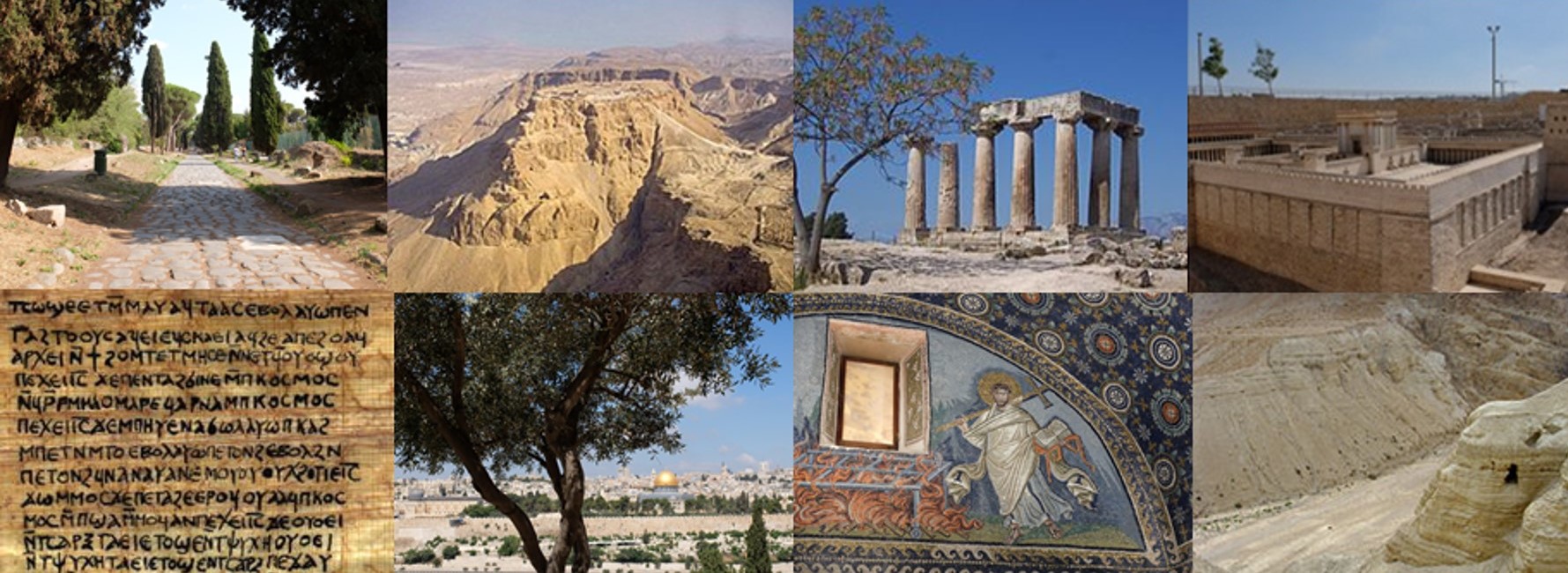Session 1
Nicholas Moore, Durham University, ‘Putting the Temple in its Place: Revisiting the Stephen–Hebrews Relationship’
Certain similarities between Acts 7 and the Letter to the Hebrews have long been noted, and both texts have been important in source-critical and socio-historical reconstructions of divergent groups within the early church. While current scholarship is more reticent regarding distinct factions of ‘Hebrews’ and ‘Hellenists’, the textual similarities remain and have been evaluated as more or less weighty by different commentators. This paper re-examines the relationship in the light of recent studies of both Acts 7 and Hebrews that contest a cult-critical reading. It first revisits and amends Lincoln Hurst’s assessment of shared lexical and conceptual points. It then argues on the basis of these commonalities that the two texts approach Israel’s sanctuary/ies through engagement with Old Testament traditions to similar ends: by attending to the heavenly sanctuary, the earthly sanctuary is neither overly exalted nor condemned, but is instead put in its rightful place, both spatially and temporally.
Robert Heimburger, ‘The Name of Jesus Christ in Acts and Names in Social Media: Saved by the Name’
The empires of social media trust in names. They promise that as users fashion their names and reputations, or as corporations shape behaviour related to those names, there is glory and profit, a form of salvation. And in Acts, the apostles’ activity revolves around a name, around the cultic act of proclaiming the name of Jesus Christ of Nazareth. This is a name to be baptized into, a name through which to be made well or to suffer, a name in which to speak or in which to be forbidden to speak. Peter declares that only in this name is there salvation (4:12). Drawing on scholarship on social media and on Acts, the paper will interrogate the use and worship of names in Acts and in social media today. The paper will explore the ways in each domain that cults surrounding names are seen to facilitate forms of communal wellbeing and salvation.
Session 2: Luke–Acts and ancient historiography
James Morgan, ‘Exegetes and historians on reading Luke and Acts within the historiographical tradition’
Review of Le corpus lucanien (Luc-Actes) et l’historiographie ancienne (https://www.lit-verlag.de/isbn/978-3-643-90954-1).
Reviewers: Loveday Alexander, Lisa Hau, and Julia Snyder
Respondent: James Morgan
Session 3
Tyler Hoagland, University of St Andrews, ‘Witnesses to Christ and Kingdom: “The Kingdom of God” as an Apostolic Anchor in the Book of Acts’
The authority of the Twelve apostles is the central authorization structure for all evangelistic endeavors in the Book of Acts. Their connection to Jesus’s own ministry and his selection of them provide the anchor that moors the growing movement to its founder. However, as the movement grows, new evangelists appear, putting pressure on this structure.
This paper contends that the phrase ἡ βασιλεία τοῦ θεοῦ anchors the ministries of Philip and Paul to the authority and teaching of the Twelve. This thesis will be demonstrated by establishing the nature of the apostolic vocation of the Twelve, as presented in the earliest chapters. Then, the role of Philip and Paul as new evangelists beyond the Twelve in the ensuing growth of the movement will be considered. Finally, the contextual function of the occurrences of ἡ βασιλεία τοῦ θεοῦ will be traced to demonstrate how this phrase connects the activities of Philip, Paul, and the Twelve to Jesus through this common kerygmatic thread.
Michael Blythe, ‘A Social-scientific Analysis of Simon the Magician’s Request in Acts 8’
Throughout Luke-Acts, status and wealth are portrayed with disdain, meanwhile the call to disband from money and possessions to assume a lower social position is presented to be a critical component to discipleship. However, the case of Simon the Magician in Acts 8 presents an unusual occurrence insomuch that a character participating in the life of the ecclesia is rejected while expressing an intent to surrender money and serve in a critical but inappropriate role. This paper employs social-scientific criticism exploring the urgency of Simon’s request in a limited good society. In proposing a purchase of apostolic gifts, Simon intended to position the apostles as patrons of the Holy Spirit’s superior power, whereby he would assume a brokerage role enabling him to retain his local honor status by continuing a benefactor role to the client population. However, to the ecclesia, Simon was seeking to achieve an honour status beyond his own, which was not only the antithesis of discipleship but also amounted to envy, a detestable quality in the social world of Luke-Acts.

